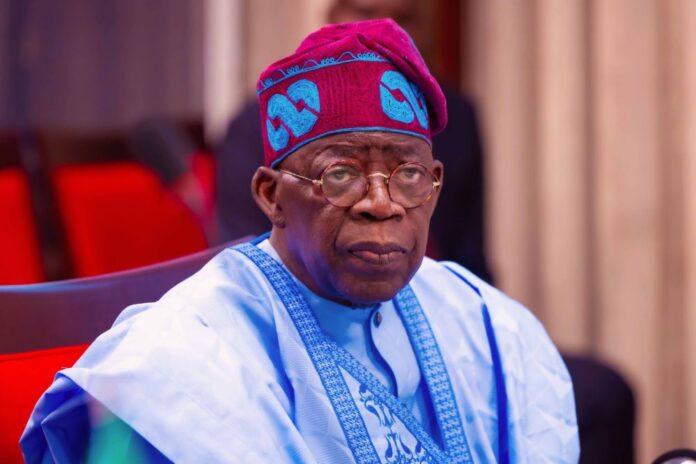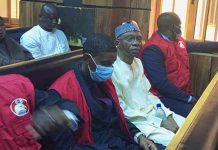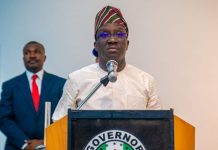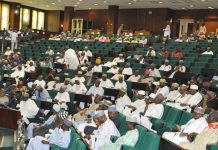The Presidency has detailed what it claims are notable economic advancements in Nigeria as a result of reforms implemented under President Bola Tinubu.
Sunday Dare, the President’s Special Advisor on Media and Public Communication, wrote on his official X handle on Thursday that the nation’s economy, which was at a “breaking point” prior to Tinubu taking office, is now making quantifiable progress.
According to him, the changes have had an impact on important areas such as commerce, foreign reserves, taxes, debt service, the elimination of fuel subsidies, the budget deficit, and public financial management.
Nigeria had a negative balance of payments that was draining the country’s economy prior to May 2023, he said, and it was regularly running a trade deficit, importing considerably more than it exported. Nigeria now records a trade surplus, which relieves pressure on external accounts. In the past, Nigeria ran numerous exchange rate windows, which led to distortions and a large disparity between official and unofficial markets. However, the tide has now turned. Reforms have harmonized the exchange rate, minimizing uncertainty and closing the gap.
Additionally, the presidential adviser cited “improvements” in the country’s foreign reserves, government revenue, and debt service.
By early 2023, Nigeria was in a precarious position due to unmet foreign exchange demand of $7 billion and net reserves that had dropped below $4 billion. Since then, reforms have cleared foreign exchange forwards, increased reserves to nearly $23 billion, and boosted confidence by permitting foreign exchange access, even on naira cards.
“Nigeria was on the verge of bankruptcy, with its tax-to-GDP ratio stuck below 10% and 97% of government revenue going toward debt payments. Today, debt service has dropped below 50% of revenue, while reforms have raised the tax-to-GDP ratio above 15%.
The elimination of fuel subsidies, he added, was a watershed moment, stating that “fuel subsidies were not only wasteful but unsustainable, draining resources while still leaving Nigerians with fuel scarcity and negative FAAC inflows.” After changes, the subsidy was removed, freeing up money for important expenditures. Additionally, states now get positive FAAC allocations and the fuel supply is guaranteed.
Dare made the following observation regarding the budget: “High deficits and low capital expenditures used to dominate Nigeria’s budget.” This tendency has been reversible because to reforms; infrastructure investment is currently rising while the deficit is falling.
Additionally, he emphasized better budgetary restraint: “By May 2023, Ways and Means’ borrowing from the Central Bank had surpassed ₦30 trillion, compromising fiscal stability and stability.” Due to stricter fiscal restraint and a steady draw-down, the reform process has reduced this practice.
Regarding the oil and gas industry, Dare said, “Theft, sabotage, and poor management were the main causes of Nigeria’s oil and gas industry’s steady decline in output. Production has now increased due to reforms and improved security, reestablishing Nigeria’s most significant source of income.
Speaking about the investment climate, he stated, “Investors were put off by the inconsistent, opaque, and unfavorable to markets pre-reform policy environment. Since then, changes have made the environment more predictable, which has attracted capital and even resulted in increases to sovereign ratings.
The presidential assistant clarified that prior to changes, inflation was rapidly increasing, and as a result, loan rates were rising, which choked enterprises. Interest rates are stabilizing and inflation has begun to decline, despite the fact that it is still high today.
“Nigeria’s reality before reforms was defined by rising poverty and shrinking job opportunities,” he added in reference to poverty and job creation. Although poverty rates are still high today, changes are consciously reversing this trend through policies that provide access to decent work and infrastructural improvements.
Before Tinubu took office, Dare claimed that Nigeria’s budgetary administration was ineffective, disorganized, and rife with inefficiencies.
He said that the “economic reforms have made public financial management more disciplined, enhanced transparency, and strengthened coordination.”
Nigeria would have had to deal with growing deficits, depleting reserves, hyperinflation, soaring debt, and potential economic collapse in the absence of the changes, according to Dare.
Join Television Nigerian Whatsapp Now
Join Television Nigerian Facebook Now
Join Television Nigerian Twitter Now
Join Television Nigerian YouTUbe Now





